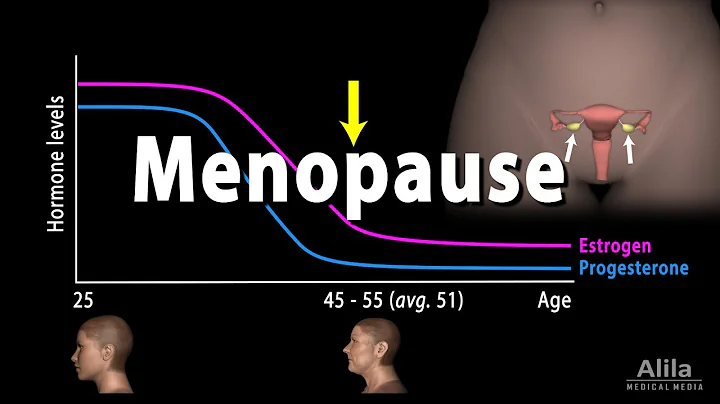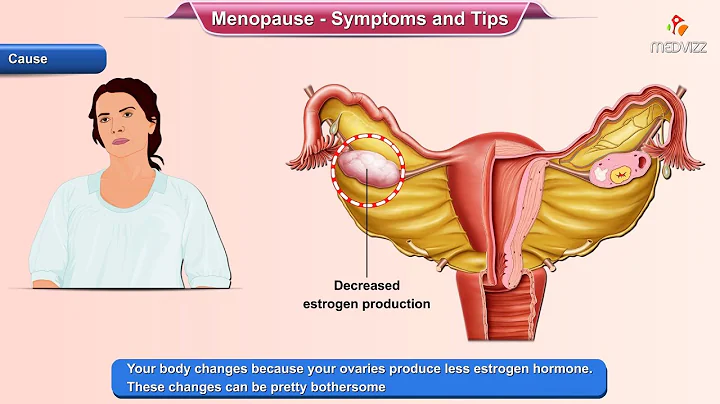Generally, Chinese women undergo menopause around the age of 50 to 55, and bleeding will not occur again after menopause. However, some women bleed again a few years after menopause, and the amount of bleeding is also large. In this case, you should not be too careful. It may be due to disease, and the most terrifying thing is cancer.

What is the reason for bleeding again after several years of menopause?
1. Ovarian function has not completely degraded.
Generally starting from around the age of 35, ovarian function gradually declines until menopause. This period is medically called perimenopause . In perimenopausal women, the ovarian function has not completely degraded and can still secrete a small amount of estrogen. The endometrium may shed to varying degrees, leading to bleeding. There is no need to worry too much if bleeding occurs one year after menopause. As time goes by, ovarian function slowly declines to the point where it is unable to secrete estrogen, thus entering true menopause.
2, related to the contraceptive ring
Some women use intrauterine devices to prevent pregnancy after giving birth. Failure to remove the IUD after menopause may cause menstruation to return after menopause. As the level of estrogen in the body decreases, the uterus slowly shrinks, causing the IUD to continue to stimulate the uterine muscle layer, causing bleeding.

3, vaginitis
I started bleeding again a few years after menopause. The amount of bleeding was not a lot and it cleared up in about 2 to 3 days. This may be atrophic vaginitis.
4, gynecological malignant tumors
If bleeding occurs again a few years after menopause, and the amount of bleeding is relatively large, accompanied by repeated bleeding, then endometrial cancer should be thought of immediately. Once there is a malignant tumor, menopausal women will experience irregular vaginal bleeding, and the blood will appear bright red or dark red; if combined with infection, a large amount of secretion will be produced, which is thick in texture and accompanied by a foul smell.
What changes will occur during menstruation before menopause?
1. Unstable menstrual cycle
Some women have weak constitutions, unstable estrogen secretion, and large fluctuations in menstrual cycles. If your menstrual cycle used to be fixed, but it has changed a lot recently, for example, you haven’t had a menstrual period for several months, and suddenly you have a small amount of menstruation; or you have 2 to 3 menstrual periods a month, and the amount of menstrual blood is very small, lasting for 2 days. ~Clean in 3 days.

2. The color of menstrual blood changes
Under normal circumstances, the color of menstrual blood is either dark red or bright red. However, when menopause is approaching, due to the influence of hormone levels, the color of menstrual blood appears light pink or a little black, and there are small blood clots in the menstrual blood. The menstrual flow is unstable, sometimes more and sometimes less.
3, hot flashes
When menopause is approaching, hormone levels in the body fluctuate greatly, causing blood vessels throughout the body to dilate, causing paroxysmal congestion, fever, and hot flashes in many parts of the body, usually lasting about 5 to 10 minutes, often accompanied by Night sweats, body fever, dizziness, etc.
Warm reminder
For safety reasons, if bleeding occurs again a few years after menopause, it is necessary to go to the hospital for relevant examinations as soon as possible to confirm the diagnosis and actively cooperate with the doctor for treatment. During this period, you should take care of yourself in various aspects, pay attention to a light diet, properly supplement vitamins, dietary fiber and trace elements, and stay away from heavy-flavored foods. Choose moderate exercise, such as cycling, swimming, walking, jogging, etc., and do not exercise less than 30 minutes a day. At the same time, you should do good personal hygiene, wear loose and breathable cotton underwear, insist on scrubbing your private parts with warm water every night, and do not use cleaning fluid at will.
Family doctor online special article, no reproduction is allowed without authorization





















